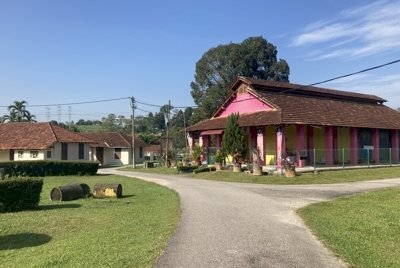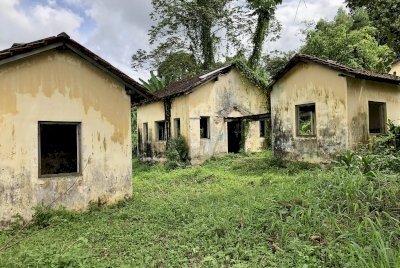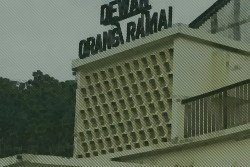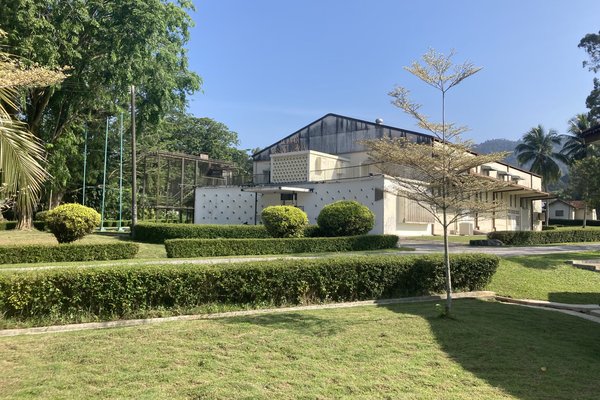Malaysia
Sungai Buloh Leprosarium
Site Info
Official Information
- Full Name
- Sungai Buloh Leprosarium (ID: 6388)
- Country
- Malaysia
- Status
-
On tentative list 2019
Site history
History of Sungai Buloh Leprosarium
- 2019: Added to Tentative List
- Added to tentative list
- Type
- Cultural
- Criteria
Links
- UNESCO
- whc.unesco.org
- Official
-
- valleyofhope.my — Valley of Hope community
All Links
UNESCO.org
- whc.unesco.org — whc.unesco.org
Official Website
- valleyofhope.my — Valley of Hope community
Community Information
- Community Category
- Secular structure: Civic and Public Works
Travel Information
Recent Connections
News
No news.
Community Reviews
Show full reviews
The Sungai Buloh Leprosarium has been added to Malaysia’s thin tentative list only in 2019, so they must have plans for it (although these are already being threatened by yet another highway). Sungai Buloh is a town in the state of Selangor. Its Leprosarium, built in 1930, was a self-contained living and working community within the town.
I got there by a combination of MRT and GrabTaxi from the center of Kuala Lumpur, which took 1.5 hours even though there is a MRT station called ‘Sungai Buloh’ on a direct line to KLCC. The ride was free as they only inaugurated this part of the line the day before (many locals on the train were taking pictures). In the Grab app, I did not find a logical destination to direct the taxi toward for the final 3km, so I just choose ‘Hee Garden’. This is one of the many plant nurseries that nowadays occupy the area.
I visited on a sunny Friday morning and found the area pleasant enough for a stroll. The nurseries directly surround the core area of the former Leprosarium. I expected some gloomy and run-down buildings, caused by the unflattering picture in Zoë’s review, but it all looks very peaceful. There is no formal entrance, you can walk around the streets freely. Only the buildings were closed, some protected by bored-looking security guards. The community hall had a sign stating that it only opens on Sundays from 9-15.
With no interpretation …
Keep reading 0 comments
Visited March 2023.
I think this could be a nice and interesting addition to WH list where medical institutions are not represented yet.
When you think leprosarium (or leper colony), you imagine an isolated community of people suffering from leprosy (Hansen’s disease) (i.e. Spinalonga, Greece, nominated in 2020, but withdrawn by Greece as a result of a lack of ICOMOS recommendation) – and you can be quite surprised when visiting this site. Today it is in the middle of Sungai Buloh town (and it can be easily reached from Kuala Lumpur Sentral by train and/or mrt, and then bus), in its modern neighbourhood where hospitals, clinics, medical schools and medical institutions are situated – these relatively new buildings (from sixties, seventies and even from the beginning of 21st century) occupy part of the so called Valley of Hope – it is the name given to this leprosy (kusta in Malay language) colony where people suffering from leprosy were not discriminated and isolated – as it happened in other leprosarium, but they were given the opportunity to integrate into the society by work, administration, education and religion. It was the second biggest leper colony in the world (after Culion in the Philippines). That was a very human approach to the disease and to the town planning too – all necessary buildings to serve this community were build in a green, beautiful natural setting – ‘garden city’. Research, experiments and trials in the Valley of Hope made it one of …
Keep reading 0 comments
My visit was a few years ago so it's not all in my memory anymore. After being added to the Tentative list in 2019 I can finally call it the "trinity of odd inscription attempts" KL has, the Quartz "looks like the back of a dragon" Ridge and FRIM "fake rain forest" Selangor Forest Park being the other two now joined by the "Valley of Hope". I wouldn't have visited if this not JUST next door to the FRIM park and it is somehow recommend by expats in KL. Leprosy isn't exactly the hottest thing to seek out when you are on holiday, but the history of the hospital (built in 1930 by the Brits) and presentation inside the Open Air Museum is quite interesting. I still don't think there is any chance of this becoming WHS though. What worries me more is that the site is using crowdfunding to survive and collect donations for the surviving patients. I don't mean to see I have a cruel heart in any way but the site's inscription attempt is more of a cry for attention, and instead Malaysia could inscribe some of its amazing marine space like Sipadan, Tenggol, Tioman (but obviously not Redang), Bako NP or the turtle reserves.
So what can you see inside the museum? Old equipment, old beds, old replacement limps, old photos. Only a handful of the old buildings have survived, with the area surrounding it now mainly used for garden centers. It's best to have …
Keep reading 0 comments
